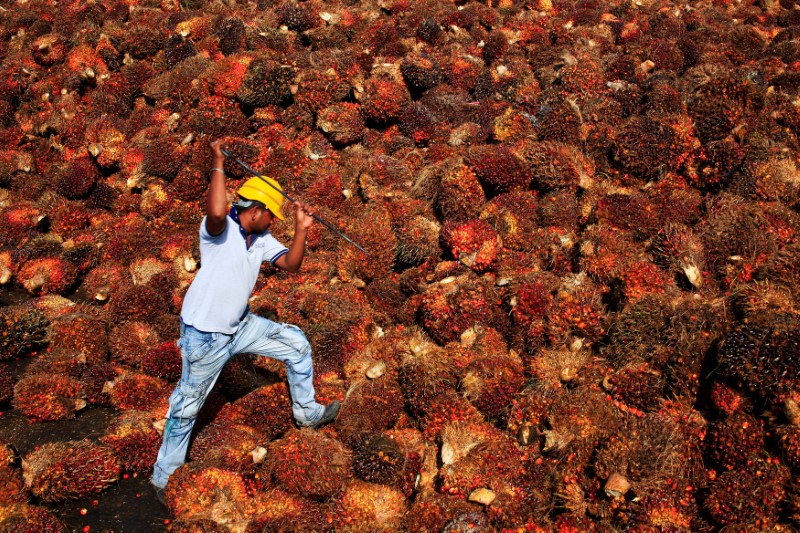By Aftab Ahmed and Rajendra Jadhav
NEW DELHI/MUMBAI (Reuters) - India is considering raising import taxes on edible oils as the country seeks to become self-reliant by boosting local oilseed production with the help of tax revenues, two government and two industry officials told Reuters.
The tax hike could curb the world's biggest vegetable oils importer's purchases and weigh on Malaysian palm oil (FCPOc3), along with soy and sunflower oil prices, while propping up local prices of oilseeds such as rapeseed, soybean and ground nut.
"We're considering a proposal to increase some tax on edible oil. If we do decide to the funds would be used to increase the production in the country," a government official, who did not wish to be identified, said.
Another government official and an industry source said the tax could be raised by 5%, but that a decision had not yet been taken.
India currently levies 37.5% and 45% import tax respectively on crude and refined palm oil. Imports of crude soybean oil, crude sunflower oil and rapeseed oil attract 35% import duty.
The trade ministry did not immediately respond to a request for comment.
India spends around $10 billion every year on edible oil imports as the country's reliance on overseas purchases have jumped to 70% from 44% in 2001/02.
The latest move is a part of Prime Minister Narendra Modi's push toward reducing India's dependence on imports and raising cash to support local production.
The government sought industry's views on how to curb edible oil imports, said B.V. Mehta, executive director of the Solvent Extractors’ Association of India (SEA).
"We have suggested various measures to increase oilseed production," said Mehta, adding the trade body had recommended raising import taxes and using that money to popularize oilseed plantation in fertile north India, where farmers prefer mainly rice and wheat.
In India, oilseeds such as rapeseed, soybean and sunflower are mainly cultivated in rain-fed areas, while farmers with secure irrigation prefer wheat and rice that the government buys from them at a set price for public welfare schemes.
India annually imports around 15 million tonnes of edible oils, including more than 9 million tonnes of palm oil and about 2.5 million tonnes each of soyoil and sunflower oil.
It buys palm oil from Indonesia and Malaysia and other oils, such as soy and sunflower oil, from Argentina, Brazil, Ukraine and Russia.
